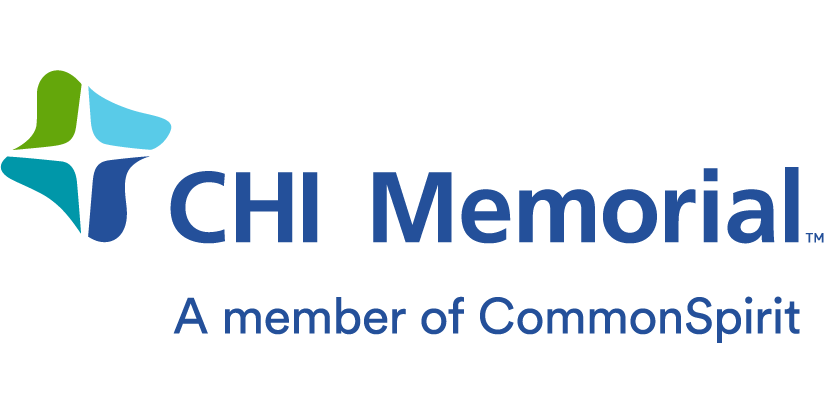
Blood or Hematologic Cancer
CHI Memorial Rees Skillern Cancer Institute provides comprehensive care for the treatment of hematologic malignancies including the three most common types – leukemia, lymphoma and multiple myeloma. Our experts are dedicated to providing exceptional, multidisciplinary care for blood disorders and cancers – from initial exams and diagnosis through treatment and into survivorship. We are focused on your needs.
Your blood plays an important part in how your body functions. It supplies your organs with oxygen and nutrients, hormones and antibodies. Cancer in the blood often occurs because of an overproduction of white blood cells. Common symptoms include weight loss or loss of appetite, persistent weakness, severe fatigue, bone and joint pain, lymph node swelling or night sweats.
There are three main types of blood cancers:
Leukemia is a broad term for cancers of the blood and bone marrow, caused by a rise in the number of white blood cells in your body. These leukemic cells often grow and survive better than normal cells. As the healthy cells are crowded out, they’re unable to do their job of protecting your body from bacteria, viruses, fungi, and other foreign substances.
Lymphoma is a cancer of the lymph system, which is part of the body’s immune system. It develops when white blood cells called lymphocytes grow out of control. Although these abnormal lymphocytes can collect in almost any area of the body, they typically build up in the neck, groin or armpits. There are over 60 different types of lymphoma, broadly grouped into Hodgkin and non-Hodgkin lymphomas.
Myeloma, sometimes called multiple myeloma, is a cancer of the plasma cells, a type of white blood cells. These cells produce infection- and disease-fighting antibodies. Myeloma cells inhibit the growth of normal antibodies, which weaken your body’s immune system and puts you at risk for infection. Abnormal antibodies produced by myeloma cells can damage the bones and result in bone fractures. They can also damage the kidneys and raise calcium levels.
Diagnosis & treatment
Most blood cancers are diagnosed through a complete blood count test (CBC), biopsy and other blood or urine tests. Treatment depends on the several factors including the type of blood cancer you have, how quickly it’s progressing, whether it’s spread to other parts of your body, and your personal health history. Thanks to advancements in cancer research, treatments for blood cancers continue to improve and include:
- Chemotherapy
- Targeted therapies
- Radiation
- Immunotherapy
- Bone marrow transplantation
At CHI Memorial, your cancer team will work with you to understand your options and help you determine the best course of treatment.
Code leukemia
The diagnosis of acute leukemia is a medical emergency – one that should be addressed with the same urgency as a heart attack or stroke. That’s why CHI Memorial implemented the Code Leukemia protocol as part of the organization’s growing hematologic malignancies program. Code Leukemia indicates the nature of a patient’s medical emergency – and is a specific pathway for individuals who have received an acute leukemia diagnosis to expedite their intake process and prevent delays in their evaluation and treatment.
Acute leukemia is a medical emergency because oftentimes patients present with dangerously high levels of white blood cells that can precipitate respiratory and neurological distress. The early signs and symptoms of acute leukemia include fatigue, shortness of breath, unexplained fever or weight loss, loss of appetite, bone pain, bruising or bleeding. Many cases of acute leukemia are found when blood work is being done for another reason – and the clock is already ticking.
Activation of the Code Leukemia protocol helps CHI Memorial’s team initiate treatment quickly – whether a patient is referred from another medical center, emergency room, or directly from a primary care office. Our goal is to have patients admitted within two hours of referral and be seen by a leukemia specialist shortly after arrival.
CHI Memorial is the area’s only program where individuals diagnosed with acute leukemia can receive the highest quality of care – without the burden of traveling and the associated expenses. We’re also improving the quality of leukemia care here at home – through care delivered by skilled providers who are familiar with these diseases, the latest treatment options, and an understanding of the unique complications that can arise.
Support at every step
At CHI Memorial Rees Skillern Cancer Institute, anyone diagnosed with cancer has access to a nurse navigator, a designated point of contact who can educate you on the disease process, answer questions, help you prepare physically and emotionally for treatment, provide resources and connect you with other modes of support throughout this journey. These include access to dietitians, clinical social workers, massage therapists, and chaplains who focus on spiritual care and advance care planning. Call (423) 495-7778 for more information.
